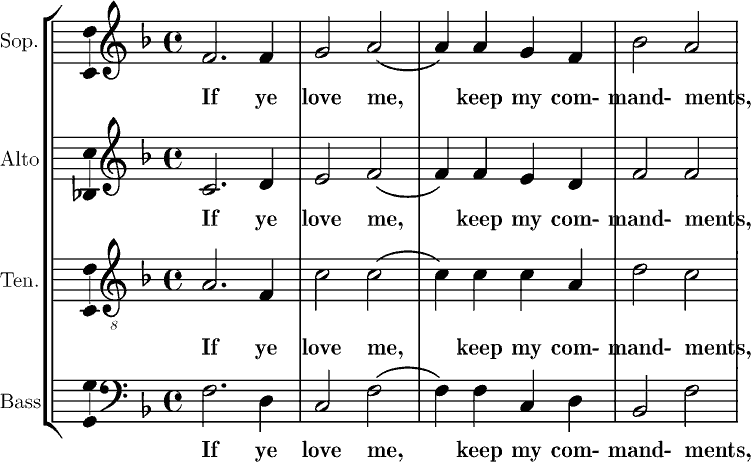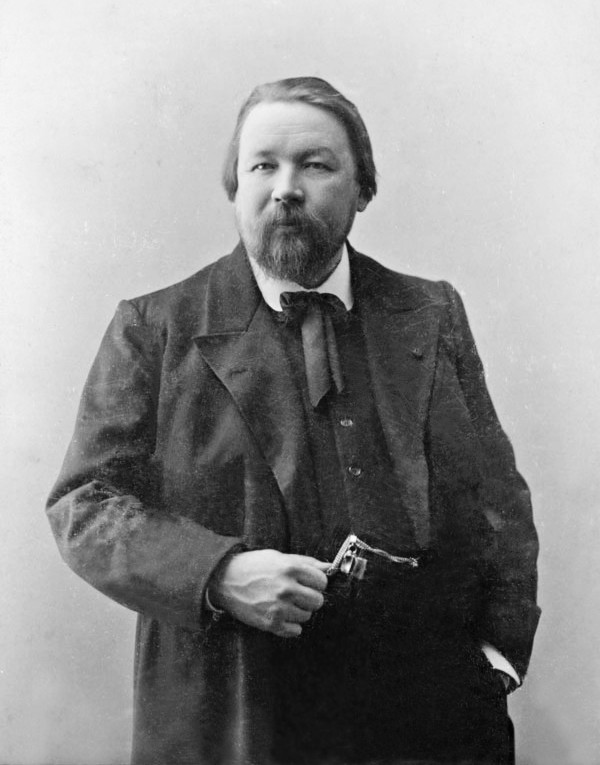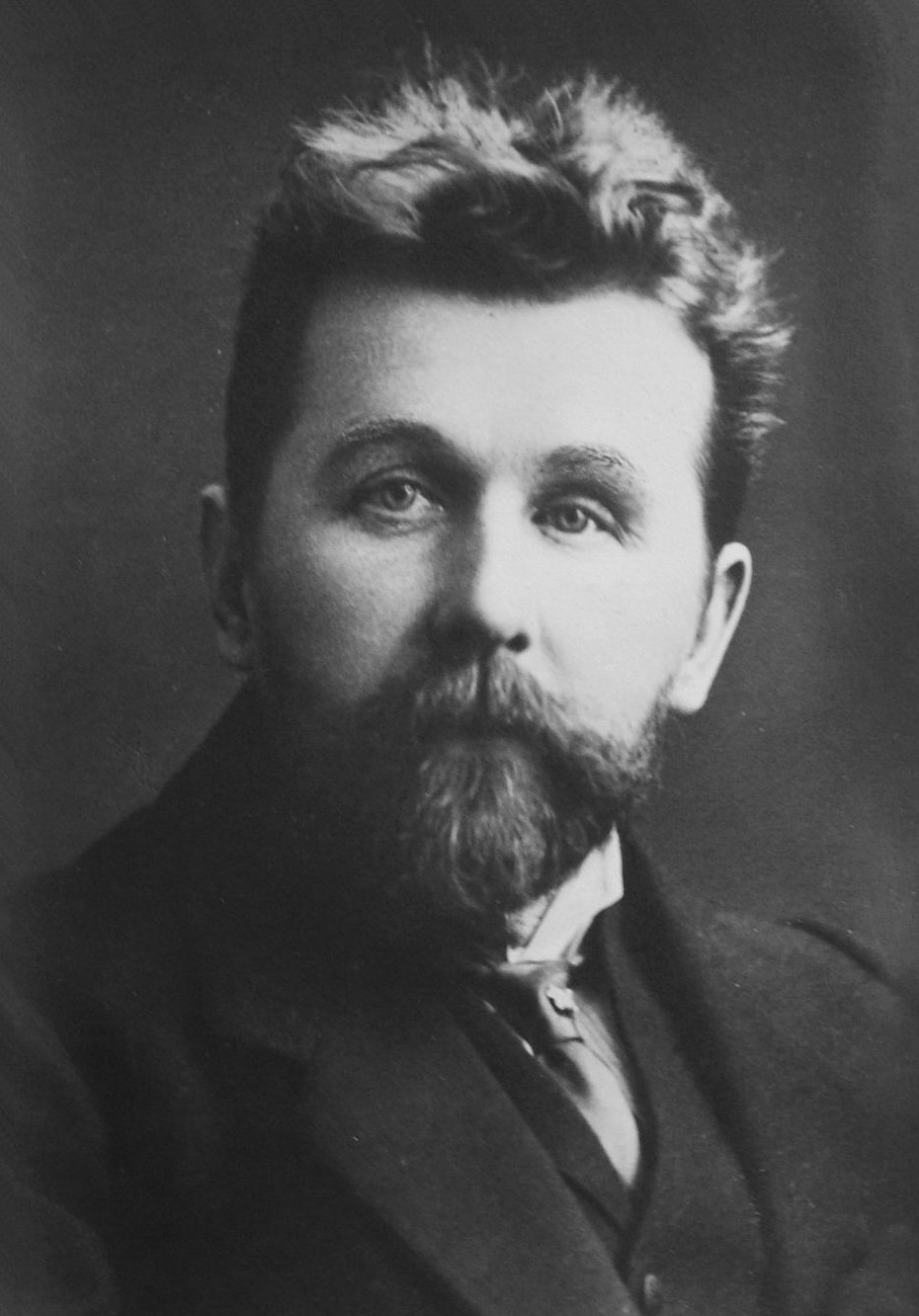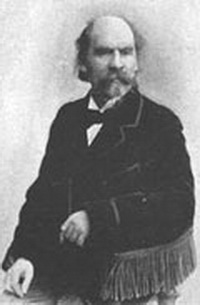|
Liturgy Of St. John Chrysostom (Tchaikovsky)
The ''Liturgy of St. John Chrysostom'' (russian: Литургия святого Иоанна Златоуста, ) is an choral composition by Pyotr Ilyich Tchaikovsky, his Op. 41, composed in 1878. It consists of settings of texts taken from the Divine Liturgy of St. John Chrysostom, the most celebrated of the eucharistic services of the Eastern Orthodox Church. Tchaikovsky's setting constitutes the first "unified musical cycle" of the liturgy. Background Tchaikovsky, known primarily for his symphonies, concertos and ballets, was deeply interested in the music and liturgy of the Russian Orthodox Church. In 1875, he compiled ''A Concise Textbook of Harmony Intended to Facilitate the Reading of Sacred Musical Works in Russia''. In an 1877 letter to his friend and patroness Nadezhda von Meck, he wrote: For me he churchstill possesses much poetical charm. I very often attend the services. I consider the liturgy of St. John Chrysostom one of the greatest productions of art. ... [...More Info...] [...Related Items...] OR: [Wikipedia] [Google] [Baidu] |
Pyotr Ilyich Tchaikovsky
Pyotr Ilyich Tchaikovsky , group=n ( ; 7 May 1840 – 6 November 1893) was a Russian composer of the Romantic period. He was the first Russian composer whose music would make a lasting impression internationally. He wrote some of the most popular concert and theatrical music in the current classical repertoire, including the ballets '' Swan Lake'' and ''The Nutcracker'', the ''1812 Overture'', his First Piano Concerto, Violin Concerto, the ''Romeo and Juliet'' Overture-Fantasy, several symphonies, and the opera ''Eugene Onegin''. Although musically precocious, Tchaikovsky was educated for a career as a civil servant as there was little opportunity for a musical career in Russia at the time and no system of public music education. When an opportunity for such an education arose, he entered the nascent Saint Petersburg Conservatory, from which he graduated in 1865. The formal Western-oriented teaching that he received there set him apart from composers of the contemporary nati ... [...More Info...] [...Related Items...] OR: [Wikipedia] [Google] [Baidu] |
Taras Shevchenko National University Of Kyiv
Kyiv University or Shevchenko University or officially the Taras Shevchenko National University of Kyiv ( uk, Київський національний університет імені Тараса Шевченка), colloquially known as KNU, is located in Kyiv, the capital of Ukraine. The university is universally recognized as the most prestigious university of Ukraine, being the largest national higher education institution. KNU is ranked within top 650 universities in the world. It is the third oldest university in Ukraine after the University of Lviv and University of Kharkiv. Currently, its structure consists of fifteen faculties (academic departments) and five institutes. It was founded in 1834 by the Russian Tsar Nikolai I as the Saint Vladimir Imperial University of Kiev, and since then it has changed its name several times. During the Soviet Union era, Kiev State University was one of the top-three universities in the USSR, along with Moscow State University and Len ... [...More Info...] [...Related Items...] OR: [Wikipedia] [Google] [Baidu] |
Amen
Amen ( he, אָמֵן, ; grc, ἀμήν, ; syc, ܐܡܝܢ, ; ar, آمين, ) is an Abrahamic declaration of affirmation which is first found in the Hebrew Bible, and subsequently found in the New Testament. It is used in Jews, Jewish, Christians, Christian, and Muslims, Muslim practices as a concluding word, or as a response to a prayer. Common English language, English translations of the word ''amen'' include "verily", "truly", "it is true", and "let it be so". It is also used colloquially, to express strong agreement. Pronunciations In English, the word ''amen'' has two primary pronunciations, () or (), with minor additional variation in emphasis (e.g., the two syllables may be equally stressed instead of placing primary stress on the second). In Anglophone North American usage, the ''ah-men'' pronunciation is used in performances of European classical music, classical music and in churches with more formalized rituals and liturgy. The ''ay-men'' pronunciation is a produ ... [...More Info...] [...Related Items...] OR: [Wikipedia] [Google] [Baidu] |
Homophonic
In music, homophony (;, Greek: ὁμόφωνος, ''homóphōnos'', from ὁμός, ''homós'', "same" and φωνή, ''phōnē'', "sound, tone") is a texture in which a primary part is supported by one or more additional strands that flesh out the harmony. One melody predominates while the other parts play either single notes or an elaborate accompaniment. This differentiation of roles contrasts with equal-voice polyphony (in which similar lines move with rhythmic and melodic independence to form an even texture) and monophony (in which all parts move in unison or octaves). Historically, homophony and its differentiated roles for parts emerged in tandem with tonality, which gave distinct harmonic functions to the soprano, bass and inner voices. A homophonic texture may be homorhythmic, which means that all parts have the same rhythm. Chorale texture is another variant of homophony. The most common type of homophony is melody-dominated homophony, in which one voice, often the ... [...More Info...] [...Related Items...] OR: [Wikipedia] [Google] [Baidu] |
Sergei Rachmaninoff
Sergei Vasilyevich Rachmaninoff; in Russian pre-revolutionary script. (28 March 1943) was a Russian composer, virtuoso pianist, and conductor. Rachmaninoff is widely considered one of the finest pianists of his day and, as a composer, one of the last great representatives of Romanticism in Russian classical music. Early influences of Tchaikovsky, Rimsky-Korsakov, and other Russian composers gave way to a thoroughly personal idiom notable for its song-like melodicism, expressiveness and rich orchestral colours. The piano is featured prominently in Rachmaninoff's compositional output and he made a point of using his skills as a performer to fully explore the expressive and technical possibilities of the instrument. Born into a musical family, Rachmaninoff took up the piano at the age of four. He studied with Anton Arensky and Sergei Taneyev at the Moscow Conservatory and graduated in 1892, having already composed several piano and orchestral pieces. In 1897, following the d ... [...More Info...] [...Related Items...] OR: [Wikipedia] [Google] [Baidu] |
Mikhail Ippolitov-Ivanov
Mikhail Mikhailovich Ippolitov-Ivanov (russian: Михаи́л Миха́йлович Ипполи́тов-Ива́нов; 28 January 1935) was a Russian and Soviet composer, conductor and teacher. His music ranged from the late-Romantic era into the 20th century era. Biography He was born in 1859 at Gatchina, near St. Petersburg, where his father was a mechanic employed at the palace. His birth name was Mikhail Mikhailovich Ivanov; later he added Ippolitov, his mother's maiden name, to distinguish himself from a composer and music critic with an identical name ( Mikhail Ivanov). He studied music at home and was a choirboy at the cathedral of St. Isaac, where he also had musical instruction, before entering the St. Petersburg Conservatory in 1875. In 1882 he completed his studies as a composition pupil of Rimsky-Korsakov, whose influence was to remain strong. Ippolitov-Ivanov's first appointment was to the position of director of the music academy and conductor of the orc ... [...More Info...] [...Related Items...] OR: [Wikipedia] [Google] [Baidu] |
Alexander Gretchaninov
Alexander Tikhonovich GretchaninovAlso commonly transliterated as ''Aleksandr/Alexandre'' ''Grechaninov/Gretchaninoff/Gretschaninow'' ( rus, Алекса́ндр Ти́хонович Гречани́нов, p=ɐlʲɪˈksandr ɡrʲɪtɕɐˈnʲinəf; , Kaluga – 3 January 1956, New York City) was a Russian Romantic composer. Life Gretchaninov started his musical studies rather late, because his father, a businessman, had expected the boy to take over the family firm. Gretchaninov himself related that he did not see a piano until he was 14 and began his studies at the Moscow Conservatory in 1881 against his father's wishes and without his knowledge. His main teachers there were Sergei Taneyev and Anton Arensky. In the late 1880s, after a quarrel with Arensky, he moved to St. Petersburg where he studied composition and orchestration with Nikolai Rimsky-Korsakov until 1893. Rimsky-Korsakov immediately recognized Gretchaninov's extraordinary musical imagination and talent and ga ... [...More Info...] [...Related Items...] OR: [Wikipedia] [Google] [Baidu] |
Pavel Chesnokov
Pavel Grigorievich Chesnokov (Russian: Пáвел Григóрьевич Чеснокóв) (24 October 1877, Voskresensk, Zvenigorodsky Uyezd, Moscow Governorate – 14 March 1944, Moscow, also transliterated ''Tschesnokoff'', ''Tchesnokov'', ''Tchesnokoff'', and ''Chesnokoff'') was an Imperial Russian and Soviet composer, choral conductor and teacher. He composed over five hundred choral works, over four hundred of which are sacred. Today, he is most known for his piece '' Salvation is Created'' as well as works such as ''Do Not Reject Me in Old Age'' (solo for basso profondo) and movements from various settings of the Divine Liturgy of St John Chrysostom. Life Chesnokov was born in Vladimir, near Moscow on 24 October 1877. While attending the Moscow Conservatory, he received extensive training in both instrumental and vocal music including nine years of solfège, and seven years training for both the piano and violin. His studies in composition included four years of harm ... [...More Info...] [...Related Items...] OR: [Wikipedia] [Google] [Baidu] |
Alexander Arkhangelsky (composer)
Alexander Andreyevich Arkhangelsky (russian: Алекса́ндр Андре́евич Арха́нгельский) (, in Staroye Tezikovo, Penza Governorate – 16 November 1924, in Prague) was a Russian composer of church music and a conductor. He "received his initial musical education at the Penza Theological Seminary; from childhood sang in the choir of the Archbishop of Penza; later taught singing in the Penza Seminary; in 1872 passed the examination at the Imperial Court Chapel for the title of precentor. From 1873 served as conductor of a number of church choirs in St. Petersburg, among them the choir of Count Sheremetev (1889-1898). In 1880 organized his own choir in St. Petersburg, replacing boys' voices with women's; from 1883 toured with this choir in Russia and abroad, performing Russian and Western sacred music, secular choruses and arrangements of folk songs. In 1902 organized the Church Singers' Benefit Society in St. Petersburg; taught choral singing in various ... [...More Info...] [...Related Items...] OR: [Wikipedia] [Google] [Baidu] |
All-Night Vigil (Tchaikovsky)
The ''All-Night Vigil for choir'' (Russian: , ), Op. 52, is an choral composition by Pyotr Ilyich Tchaikovsky, written from 1881 to 1882. It consists of settings of texts taken from the Russian Orthodox all-night vigil ceremony. This work, like Sergei Rachmaninoff's ''All-Night Vigil'', has been referred to as the Vespers. Like the Rachmaninoff, this is both literally and conceptually incorrect as applied to the entire work, as it contains settings from three canonical hours: Vespers, Matins and the First Hour. Background Prior to Tchaikovsky's setting of the all-night vigil, the only setting in existence had been by Artemy Vedel in the 18th century. Russian church music underwent a period of stagnancy in the 18th and 19th centuries. This was partially attributed to the monopoly on its composition and performance held by Dmitry Bortniansky, while he was the director of the Imperial Chapel. Tchaikovsky, known primarily for his symphonies, concertos and ballets, was d ... [...More Info...] [...Related Items...] OR: [Wikipedia] [Google] [Baidu] |
Modest Ilyich Tchaikovsky
Modest Ilyich Tchaikovsky (russian: Моде́ст Ильи́ч Чайко́вский; –) was a Russian dramatist, opera librettist and translator. Early life Modest Ilyich was born in Alapayevsk, Verkhotursky Uyezd, Perm Governorate, the younger brother of the composer Pyotr Ilyich Tchaikovsky. He graduated from the Imperial School of Jurisprudence with a degree in law. In 1876, Modest became the tutor to a deaf-mute boy Nikolai ("Kolya") Hermanovich Konradi (1868–1922) and, using a special teaching method, helped him to talk, write, and read. In his still unpublished Autobiography, broadly quoted by Alexander Poznansky, Modest Ilyich Tchaikovsky mentions his and his brother Pyotr Ilyich Tchaikovsky's homosexuality.Poznansky, Alexander. ''Tchaikovsky Through Others' Eyes''. Indiana University Press, 1999, p. 8 Career Modest chose to dedicate his entire life to literature and music. He wrote plays, translated sonnets by Shakespeare into Russian and wrote librettos for op ... [...More Info...] [...Related Items...] OR: [Wikipedia] [Google] [Baidu] |
Nikolai Rubinstein
Nikolai Grigoryevich Rubinstein (russian: Николай Григорьевич Рубинштейн; – ) was a Russian pianist, conductor, and composer. He was the younger brother of Anton Rubinstein and a close friend of Pyotr Ilyich Tchaikovsky. Life Born to Jewish parents in Moscow, where his father had just opened a small factory, Rubinstein showed talent at the keyboard early on. He studied piano first with his mother, and while the family was in Berlin between 1844 and 1846, he studied piano with Theodor Kullak and harmony and counterpoint with Siegfried Dehn; during this time both he and his brother Anton attracted the interest and support of Mendelssohn and Meyerbeer. When the family returned to Moscow, Nikolai studied with Alexander Villoing, who also toured with him. He studied medicine to avoid army conscription, graduating from Moscow University in 1855. As a result of his playing, Rubinstein was welcomed in all the fashionable artistocratic houses in Mo ... [...More Info...] [...Related Items...] OR: [Wikipedia] [Google] [Baidu] |
.jpg)

.png)






